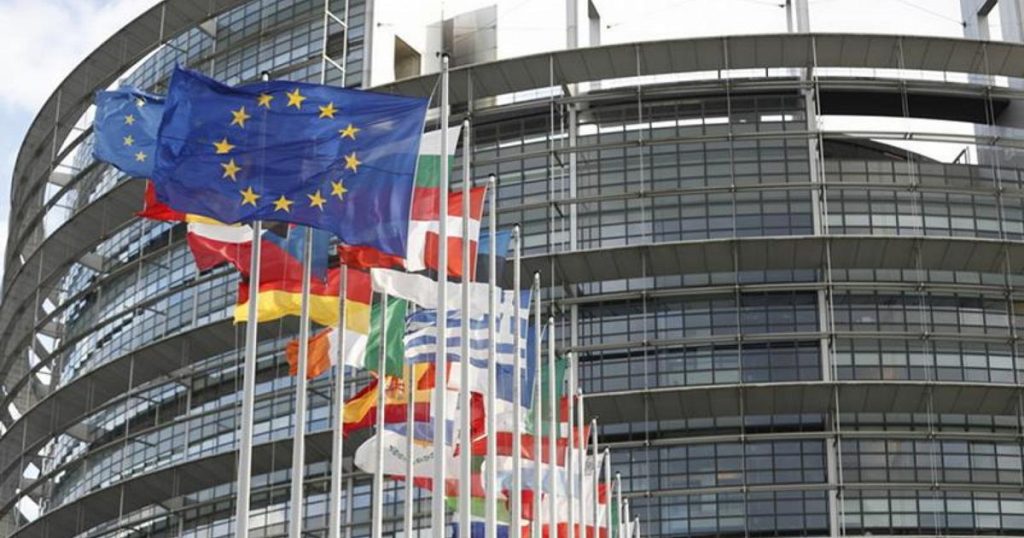The European Parliament has given its final approval to the new Stability Pact, which sets out new budget rules that will come into effect this year for the preparation of the 2025 financial plans. The rules had been preliminarily agreed upon with the Council, which must now formally adopt the stability pact reform. The directive for the new economic governance of Europe was approved with 359 in favor, 166 against, and 61 abstentions, with a total of 586 present in the Strasbourg chamber. Prior to this, the chamber approved the so-called preventive arm of the new rule with 367 in favor, 161 against, and 69 abstentions, as well as the corrective arm with 368 in favor, 166 against, and 64 abstentions. The European Economy Commissioner, Paolo Gentiloni, remarked on the approval of the new EU fiscal rules, stating that the EU had emerged from an extraordinary four-year period for its economy. During this time, the general safeguard clause had suspended the old Pact, giving member states the flexibility they needed to respond to shocks. Gentiloni expressed confidence in the new chapter of economic governance in the EU, believing that it will allow the EU to face current and future challenges with renewed confidence.
Gentiloni’s remarks reflect the significance of the approval of the new Stability Pact by the European Parliament, marking a turning point in economic governance in the EU. The four-year period of economic upheaval required the suspension of the old Pact, but now the EU is ready to move forward with a new set of fiscal rules. The adoption of these rules represents a shift towards a more stable and predictable economic framework, providing member states with clear guidelines for budgetary discipline and economic stability. The approval of the new pact is seen as a necessary step to address the challenges facing the EU and ensure a more resilient and sustainable economic future for the region. The governance of the Pact will help to enforce fiscal responsibility and prevent excessive deficits, promoting sound economic policies and long-term growth.
The approval of the new Stability Pact by the European Parliament signals a commitment to strengthening economic governance in the EU and ensuring fiscal discipline among member states. The new rules aim to provide a framework for sustainable and responsible budgeting, helping to prevent excessive deficits and debt accumulation. By implementing these rules, the EU hopes to promote economic stability and growth, fostering a more resilient and competitive economy. The adoption of the new rules reflects a collective effort to address the economic challenges facing the EU and create a more robust and integrated economic framework for the region. The Pact represents a commitment to fiscal responsibility and accountability, as well as a recognition of the need for coordinated action to address economic imbalances and promote sustainable growth.
The European Parliament’s approval of the new Stability Pact comes after a period of uncertainty and upheaval in the EU, as member states grappled with the economic impact of the COVID-19 pandemic. The suspension of the old Pact during this period allowed for greater flexibility in responding to the crisis, but now the EU is looking to establish a more stable and predictable economic framework. The adoption of the new rules represents a step towards rebuilding and strengthening the EU’s economy, ensuring greater resilience and sustainability in the face of future challenges. By approving the Stability Pact, the European Parliament is sending a strong signal of its commitment to sound economic governance and responsible budgeting, laying the foundation for a more stable and prosperous economic future for the EU.
In conclusion, the approval of the new Stability Pact by the European Parliament represents a significant milestone in the EU’s efforts to strengthen economic governance and promote fiscal discipline. The new rules provide a clear framework for budgetary discipline and economic stability, helping to prevent excessive deficits and debt accumulation. The adoption of the Pact reflects a collective commitment to fostering economic stability and growth, and ensuring a more resilient and competitive economy in the EU. The approval of the Stability Pact marks a turning point in the EU’s economic governance, signaling a new chapter of stability and predictability in economic policy. The Pact represents a key step towards addressing the challenges facing the EU and creating a more sustainable and prosperous economic future for the region.


